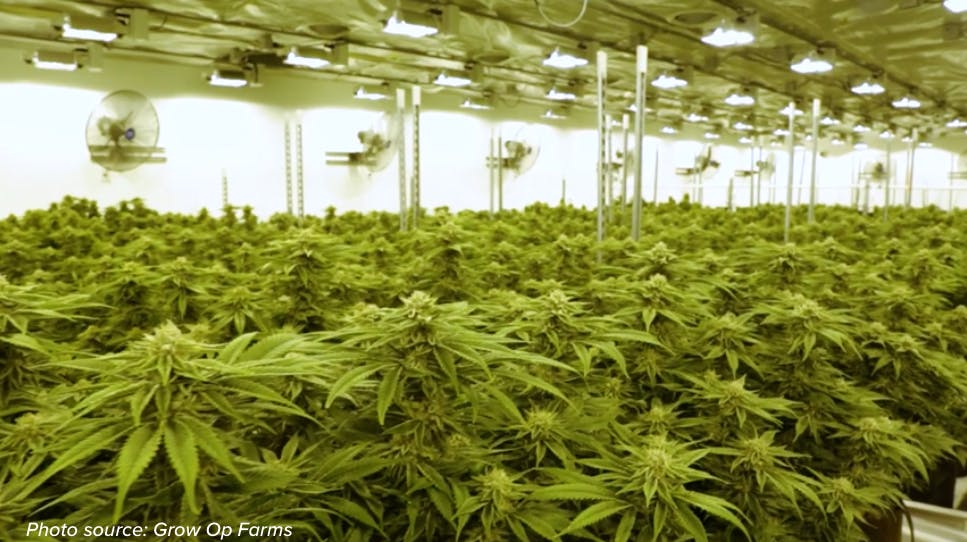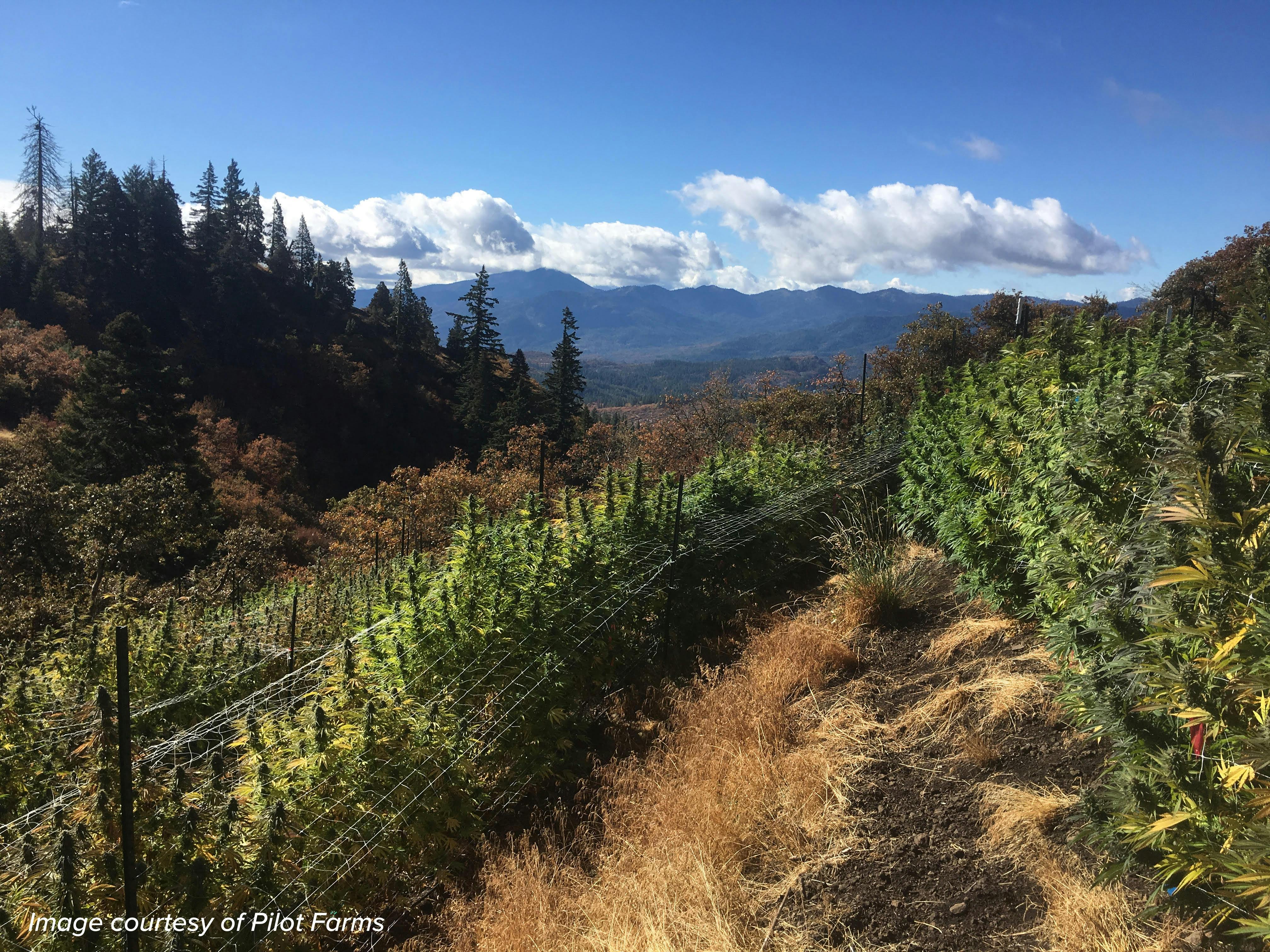How two businesses are increasing production space, boosting genetic diversity, and saving resources with the Plant Sex Test.
In 2014, GrowOp Farms took over an old 30,000 square foot furniture warehouse in Spokane Valley, Washington with a handful of staff. Fast forward to today, and they're the state's top cannabis producer with over 175,000 square feet of operational space and 60,000 of canopy. The vertically-integrated company manages multiple brands and controls their supply chain with in-house production, processing, and packaging.
Grow Manager Mojave Morelli drives GrowOp toward their lofty goal—to take their brands national following deregulation. This means they’re pouring the majority of their energy into internal breeding programs and maximizing efficiencies wherever possible. “Our goal is to make gains in the market and produce the highest quality products we can before the really big money and very large scale producers get here,” says Morelli. With the average price of a gram of flower plummeting from $25 to $7 since opening their doors, increasing efficiencies while still upholding their commitment to craft is critical to their bottom line.

GrowOp strives to meet consumer demand for new products by continuously breeding and hunting novel varieties for their top-selling flower brand, Phat Panda. In Washington, producers have 15 days after licensing to bring plants, seeds, and clones into their facility. After that window has passed, they're limited to using their existing inventory or sourcing varieties from other state-licensed producers.
"We brought in everything we could find within those 15 days—thousands of seeds and strains—because we wanted to have a huge pool of diversity," Morelli says. Every two months, they plant 500-1000 seeds and carefully select the top performers. For Morelli, reducing the time it takes from planting to harvest is a driver of increased revenue.
By using DNA-based testing to sex plants early, GrowOp is able to significantly reduce the time it takes to identify the best varieties and bring them to market. “It helps us expedite the entire process. With sex testing, it cuts the time to develop and release a new product from 16 months to 8 months. It also saves us an exorbitant amount of money by reducing labor, fertilizer, and lighting. And the energy impact is lessened quite a bit, as well.”
Even with a dedicated 110+ person cultivation team, identification of male and female plants by eye is time consuming and risky—improperly identified plants can pollinate entire rooms. Sex testing allows them to direct the majority of their labor and energy to managing their 50-plus craft rooms where they strive to produce the highest quality flower on the market.
——
In Oregon, Pilot Farm grows exclusively in native soils on a mountainside just outside Ashland. On their regenerative 80-acre farm, plants bask in the sunlight across terraced gardens and gentle slopes reaching altitudes of 4,500 feet. Cofounder and Head Grower Matt Dolinar cherishes the sunny days that stretch into November, when colder nights serve as a natural defense against mold.
Unlike highly-controlled indoor environments, sungrown production requires being at the mercy of the seasons. An unseasonably rainy spring can delay planting and impact the entire harvest cycle. For Dolinar, the Plant Sex Test offers peace of mind and an insurance policy, of sorts. “We might have to wait a month or more before planting if we have a really wet spring. Using the Plant Sex Test means it's not a big deal to plant in late May—we'll ultimately still get the plants in the ground within a reasonable time."

Now that regulations have changed and he’s no longer limited to a maximum number of plants per patient, he’s able to fill his rows with more plants and harvest when they’re smaller. “The quality goes up when you have smaller plants. It’s more efficient because you don’t have 4 layers of nets or plastic. It saves labor, it saves plastic waste, and the buds look great without giant colas — you get more tops and not as many side branches.”
Dolinar has also been able to increase the diversity of varieties they’re able to plant. “One of the major advantages of Phylos is that we’ve seen a lot of different phenotypes and more genetics because we’re doing so many more seeds. We can run 1,800 and plant 1,000—almost doubling what we could have done before.”
Early sex testing has also helped him dramatically increase his production capacity.
“It’s a huge time and space saver. It allows us to identify males in two weeks before the first transplant, and we can fit thousands of seedlings into our propagation greenhouse instead of hundreds. Without the test, it would take up to 8 more weeks depending on the strain, and even then some strains don’t always show sex visually.”
“We never want to sacrifice quality, and in this market we have to be as efficient as possible and cut costs everywhere we can. Testing every plant is a $15,000 price tag on top of everything else, so last year we experimented with doing half ourselves by planting unverified plants and culling in the field."
"Ultimately, it was a wash when we costed out the labor it took to do it ourselves. It was stressful, and some didn’t show until it was too late. There’s something to be said for saving our mental energy by just getting it done quickly. It takes away the stress and it’s hard to put a price on that.”
—
Phylos works with growers of all sizes to help businesses increase efficiencies and boost their bottom line. Learn more about integrating the Plant Sex Test into your business model.